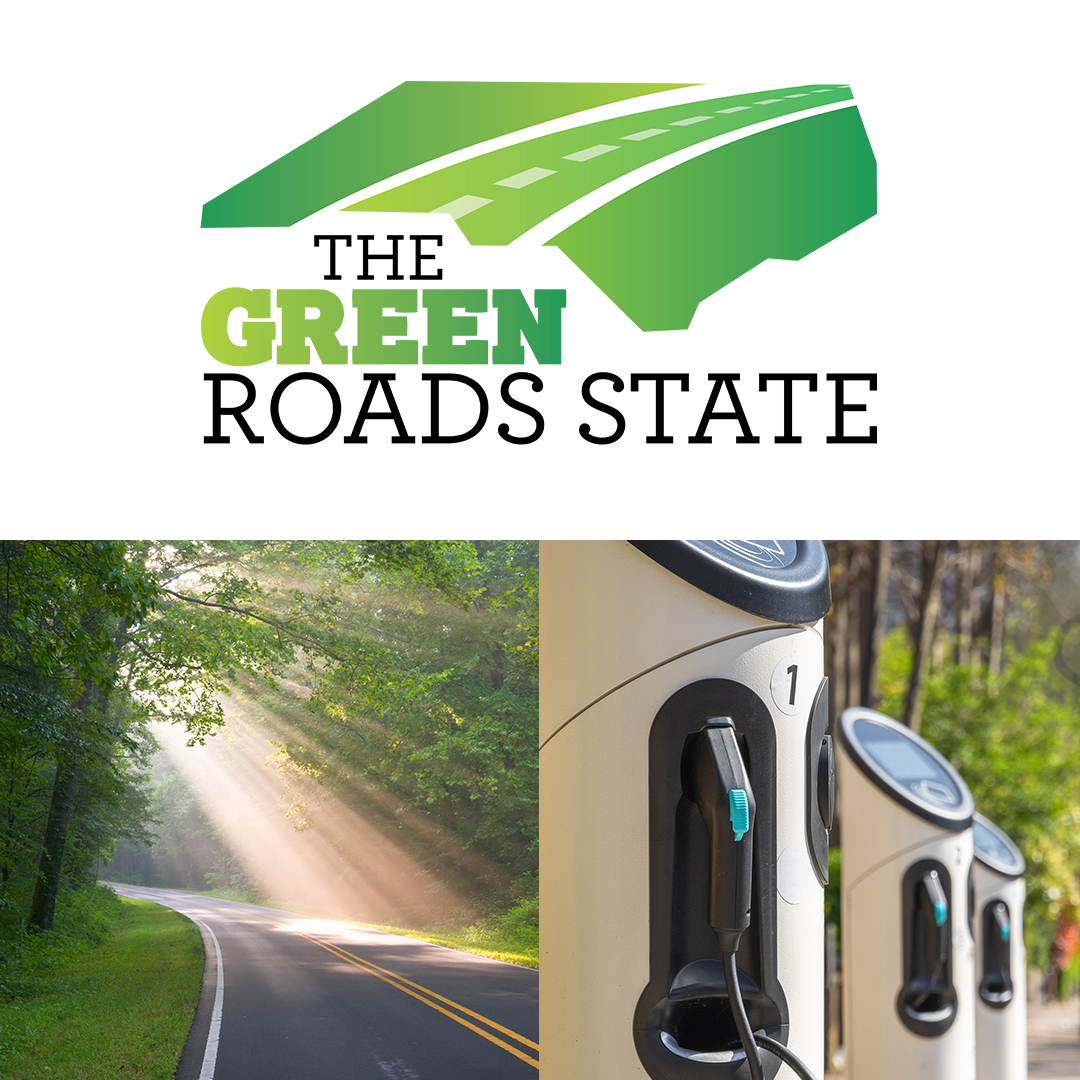The N.C. Sierra Club believes North Carolina can be a leader in the drive to clean transportation - and we're working to make it happen.
We know our Chapter's 100,000 members and supporters want action on climate change. The Club's Ready for 100 campaign is founded on the idea that every U.S. community can be powered entirely by clean, renewable energy sources. Cities, counties, and towns across our state have joined this initiative because they understand that major change is necessary to avoid climate catastrophe.
A critical component of this shift is transportation. Transportation emissions are the top contributor in the United States to climate change. A green future depends on a shift to electric vehicles (EVs), including electric auto fleets.
 The Chapter's Green Roads State campaign is about advocating for more EV charging infrastructure in North Carolina, particularly at our numerous state parks and historic sites.
The Chapter's Green Roads State campaign is about advocating for more EV charging infrastructure in North Carolina, particularly at our numerous state parks and historic sites.
Last week, we partnered with the N.C. Clean Energy Technology Center to host a Local Government Electrification Learning Roundtable. We are excited to be a part of this community initiative to share ideas about transportation electrification best practices. This was the third in a series of roundtables we began hosting last fall.
The City of Raleigh is a Ready for 100 community and a leader in planning for EVs. Greg Sponseller, Energy and Sustainability Analyst with Raleigh’s Office of Sustainability, managed a 2019 study to support EV market growth. The study created a GIS tool to identify priority locations for publicly available Level 2 EV charging stations. During our roundtable, Sponseller demonstrated the mapping software, which allows planners to analyze overlapping demographic, geographic, and behavior data points in Raleigh and target ideal EV infrastructure locations.
Determining ideal charging infrastructure sites is key as North Carolina moves to disburse $67 million in Volkswagen (VW) settlement funding. Jill Vitas, the Department of Environmental Quality (DEQ) Grants Manager for the VW settlement, emphasized that the main goals for this round of projects are to electrify heavy-duty vehicles, increase public sector electrification resources, and provide outreach to rural and historically under-resourced communities. These goals will be bolstered by a full,15 percent allocation for light-duty EV charging infrastructure.
We're urging DEQ to make EV purchasing and infrastructure the focal point of the upcoming round of VW settlement grants. Help us by submitting comments before the Sept. 7 deadline.